Alfred Nathan Nsubuga Mayanja (1929)
Here from the very beginning
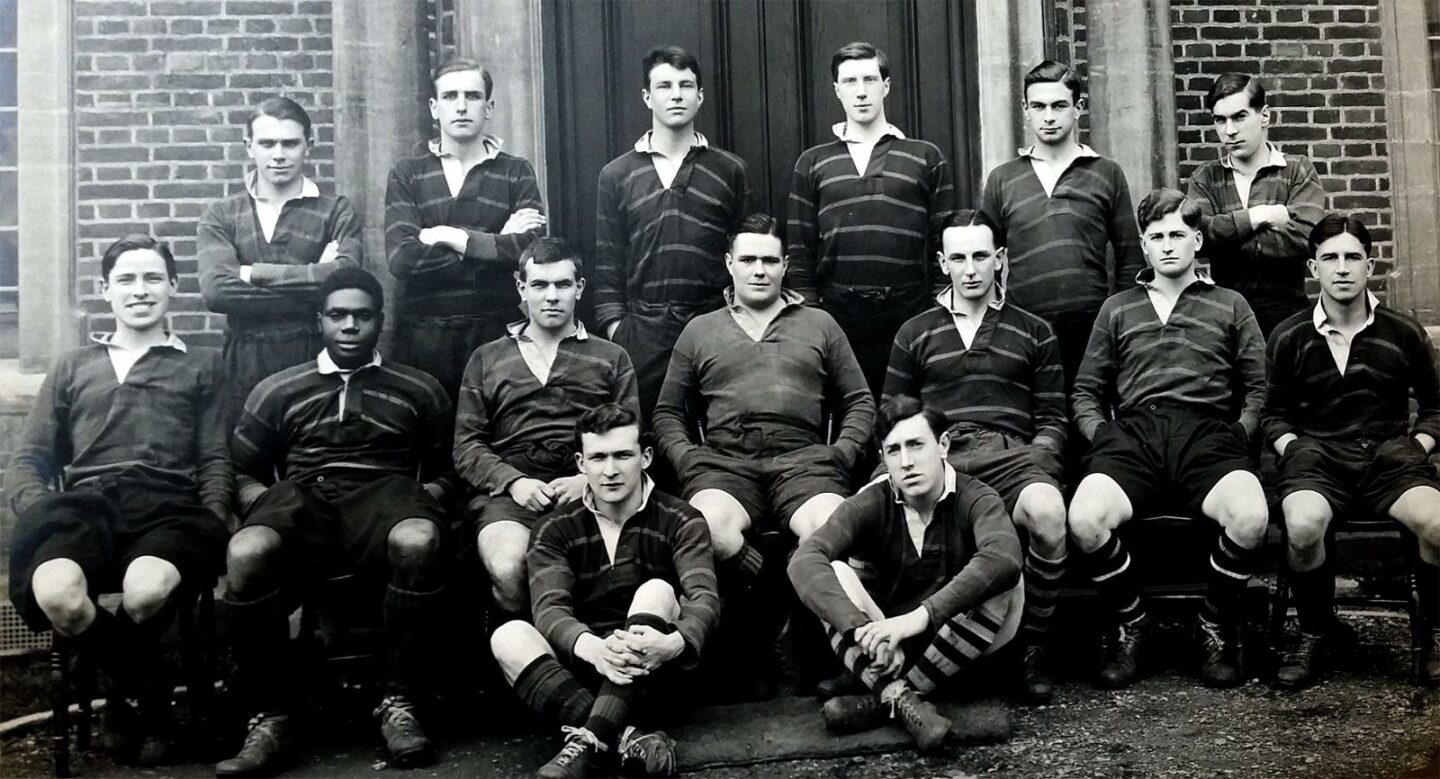
St Peter’s is unusual amongst Oxford colleges in having had Black undergraduates in its community right from its foundation in 1929. That first cohort of undergraduates included Alfred Nathan Nsubuga Mayanja (b. 1905), who arrived in Oxford from Uganda to read Jurisprudence. His journey to New Inn Hall Street came to typify those of many other Black students at St Peter’s in its early days, who often became aware of the College via the influential network of Christian missionary schools then active throughout Africa and the wider world. (Alfred Mayanja was himself a graduate of Trinity College, founded by the Church Mission Society in Kandy, Sri Lanka, in 1872.)
The records we have of Mayanja’s time at St Peter’s show him enjoying life outside of his studies - he is there in the team photographs of rugby and football. He graduated in 1933, subsequently returning to Uganda to practise law (a 1944 Register of The Middle Temple lists his residence as being in Kampala).
Edward Akufo-Addo (1933)
President of Ghana (1970-1972)
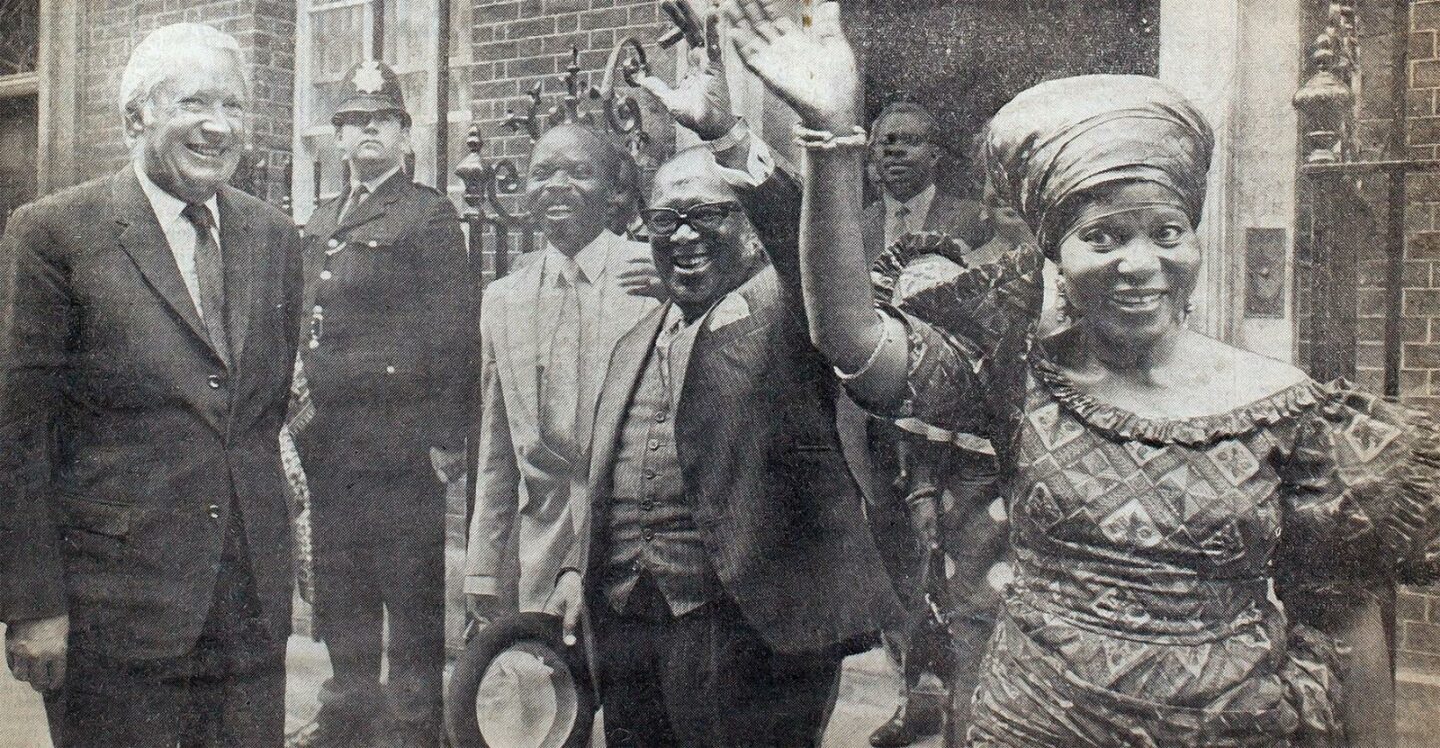
The same year that Alfred Mayanja returned home, St Peter’s welcomed two students from what was then known as the Gold Coast, both of whom would go on to play important roles in the history of what is today Ghana. Like Alfred Mayanja before them, Edward Akufo-Addo (1906–1979) and Daniel Ahmling Chapman Nyaho (1909–2001) came to St Peter’s as graduates of a school with missionary links, in this instance Achimota College, whose founders included Revd Alec Garden Fraser (1873–1962), a former Principal of Trinity College, Kandy.
Akufo-Addo came to St Peter’s to read Mathematics, but ended up graduating in Trinity term 1936 with a degree in Politics, Philosophy and Economics (now called PPE, then ‘Modern Greats’). Chapman Nyaho read Geography, graduating in the same year. Both men subsequently returned to the Gold Coast, where Akufo-Addo set up a legal practice and Chapman Nyaho returned to teach at his alma mater.
Edward Akufo-Addo became a founding member of the United Gold Coast Convention (UGCC), a political party whose aim was to bring about Ghanaian independence, and he later served as a Supreme Court judge following the end of British rule. His career would see him rise to become Chief Justice (1966–1970) and later President (1970–1972) of the Republic of Ghana. It was as President that he returned as an Honorary Fellow to St Peter’s in April 1971, when he opened the newly-completed Matthews Building.
His portrait is one of a number of alumni of colour to hang on the walls of the College dining hall, which also includes notable living Black alumni, including Daniel E. Hastings (1973), Dr Joanna Chikwe (1994), and Karen-Mae Hill (2001).
Daniel Chapman Nyaho (1934)
Ghanaian Ambassador to the United States and UN Representative
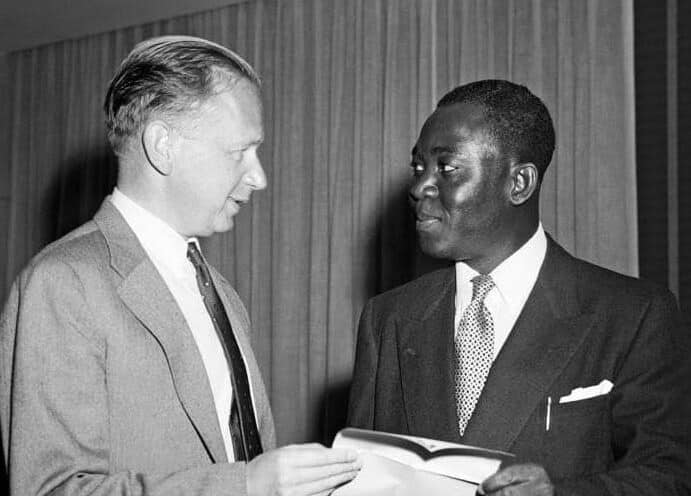
Daniel Chapman Nyaho (1909-2001) became known in Ghana for his significant role in contemporary politics. An early advocate of the rights of the Ewe people, who had been dispersed into different colonial administrations by the powers of the time, he was a founding member of the All-Ewe Conference (AEC), serving as its first secretary. Through his engagements as a member of the conference, he gained appointment in 1946 at the United Nations, becoming one of the first Africans to serve on the world’s most powerful intergovernmental organization.
Following Ghana’s independence in 1957, Chapman Nyaho was appointed as Ghana’s ambassador to the United States and its permanent representative at the UN, while in 1958 he became the first African headmaster of Achimota College, making him, along with Kenneth Luther Purser (1925-2020), one of two Black alumni of the College then at the head of one of Ghana’s leading secondary schools. (Kenneth Purser, a Nigerian-born Jamaican who matriculated at St Peter’s in 1953, served as headmaster of what is today Ghana Senior High School from 1960.)
William ‘Bill’ Thomas, Jr. (1946)
The first African-American to receive a double Blue at Oxford
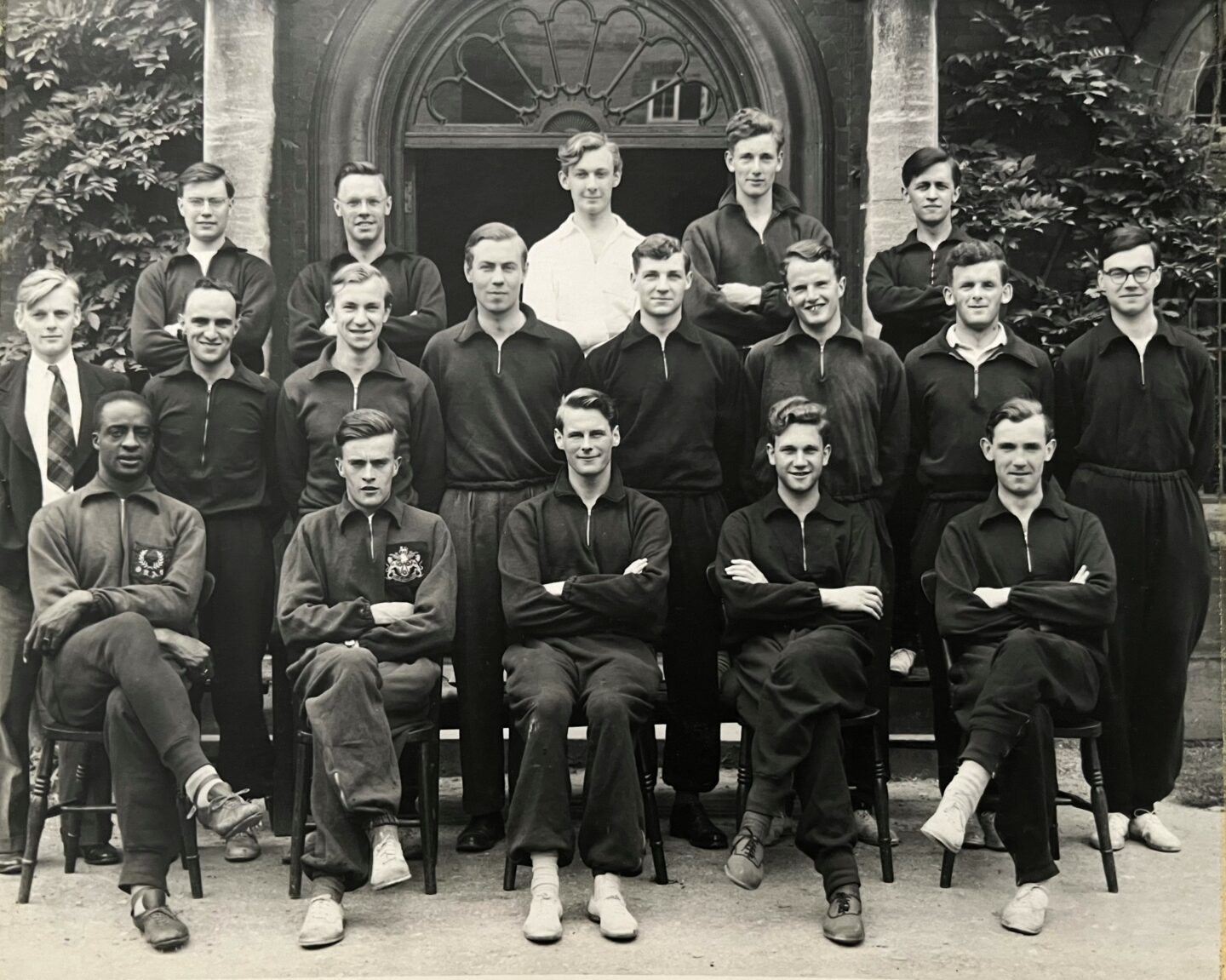
William ‘Bill’ Thomas, Jr. (1917-2010) became only the second African American to graduate from Oxford, and the first to be awarded a double Blue for his sporting achievements. Thomas first arrived at St Peter’s Hall in Hilary term 1946 as part of a group of fifteen Americans students matriculating in a scheme for American servicemen to take part in university classes for a single term. During this short time, Thomas read PPE and was awarded his first full Blue for his performance in high hurdles at the Oxford University Athletics Cup representing the Hall.
After completing his military service, he returned to St Peter’s in 1949 to complete his degree in PPE. He earned his second Blue in the athletics event of discus. On the track he trained with Roger Bannister, later the first athlete to finish the mile run in under four minutes. After graduating in 1952, Thomas returned to America to first lecture in Economics at Fisk University, a historically Black college, and later led a successful business career in Houston, playing a key role in the creation of Houston’s first Black-owned bank in Texas.
Learn more about William 'Bill' Thomas Jr. in this 2020 article featuring 100 notable black Oxford alumni.
Okot p'Bitek (1960)
Poet, truth-teller
Outside of politics and journalism, St Peter’s Black alumni have made many notable contributions in the arts. Perhaps the most celebrated is Okot p’Bitek (1931–1982), who came to St Peter’s in 1960 to read for a B.Litt in Anthropology. He returned to his native Uganda in the mid-1960s, where he was appointed director of the country’s National Theatre and National Cultural Centre (1966–1968).
Today, he is best known for his poetry, however, and his three verse collections—Song of Lawino (1966), Song of Ocol (1970), and Two Songs (1971)—are considered to be among the best African poetry in print. Song of Lawino was particularly widely read following its publication, and its scathing criticism of corruption earned Okot p’Bitek the enmity of the Ugandan authorities. It was at this point that p’Bitek also found himself struggling to have his DPhil thesis accepted at Oxford, the full story of which has recently been told by Professor Tim Allen of the London School of Economics.
Tony Abrahams (1962)
The first St Peter’s student elected President of the Oxford Union
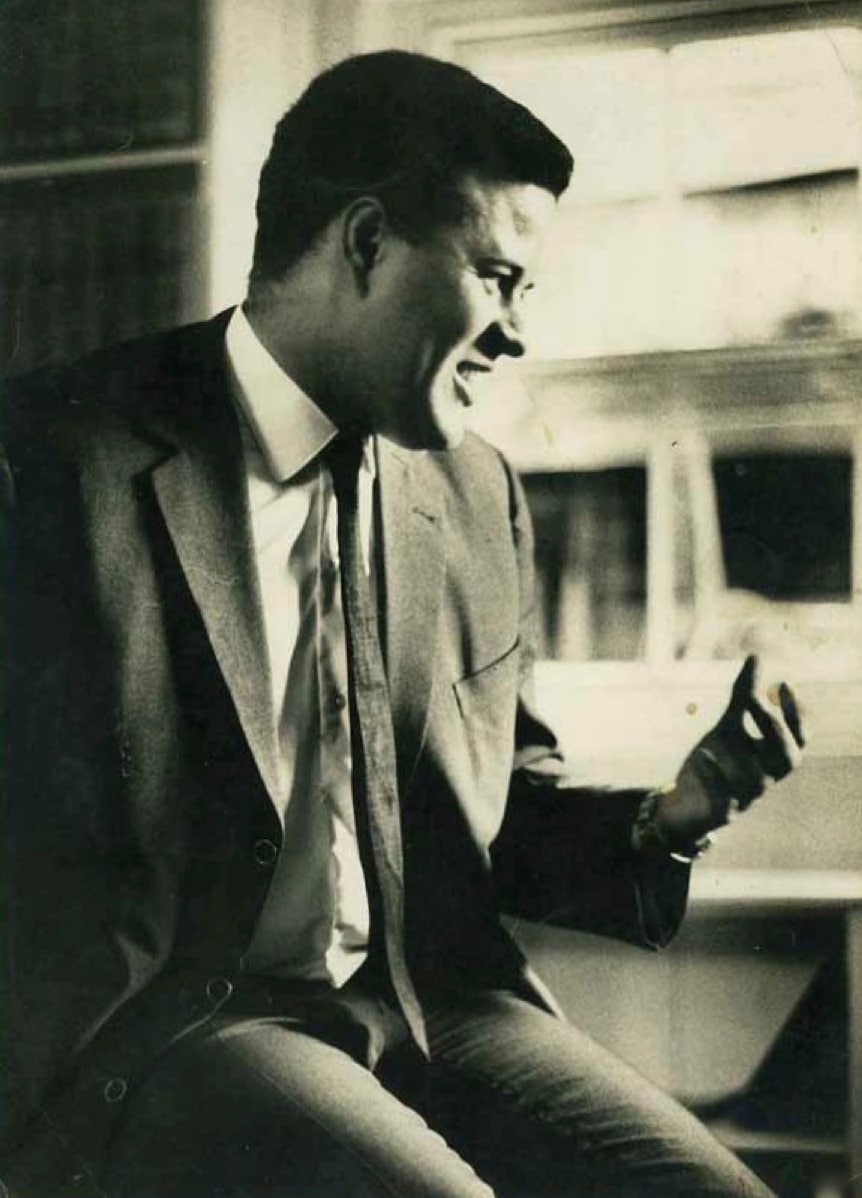
The portraits in the hall also include that of Eric Anthony 'Tony' Abrahams (1940–2011), who came to St Peter’s from Jamaica as a Rhodes Scholar in 1962. Not only was he the first St Peter’s student elected President of the Oxford Union (served, Michaelmas 1964), but he was also only the second person of African-Caribbean descent to hold the post (and the first of the post-war period). It was Abrahams who invited Malcolm X (1925–1965) to speak at the Union, an invitation the American civil rights activist accepted in December 1964. You can watch the video here.
Following graduation, Abrahams went on to become the BBC’s first Black television reporter. He later served as a member of the Jamaican parliament, and was Director—then Minister—of Jamaican Tourism. He was also a broadcast journalist and hosted a long-running and pioneering radio show.
Dr Joanna Chikwe, MD (1994)
Leading cardiac surgeon
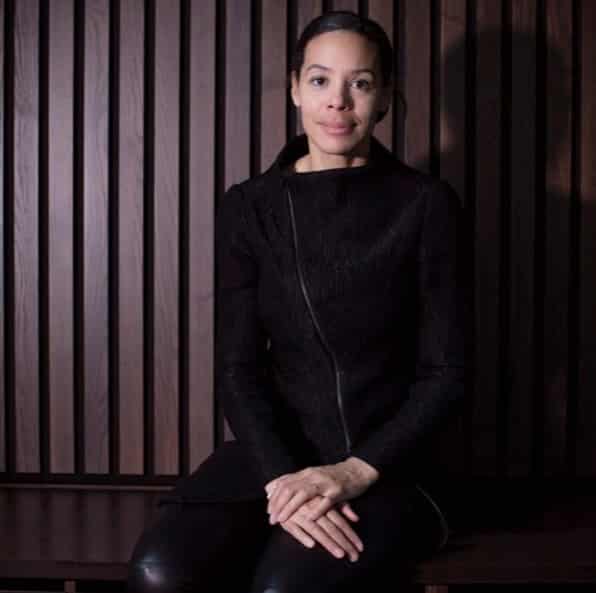
In 2022, the founding chair of the Department of Cardiac Surgery at the Smidt Heart Institute, Dr Joanna Chikwe, MD (Medicine, 1994), became the first woman to serve as editor-in-chief of the Society of Thoracic Surgeons (STS) journal, Annals of Thoracic Surgery. Dr Chikwe’s portrait by Fran Monks hangs in the College Dining Hall.
Karen-Mae Hill (2001)
High Commissioner for Antigua and Barbuda
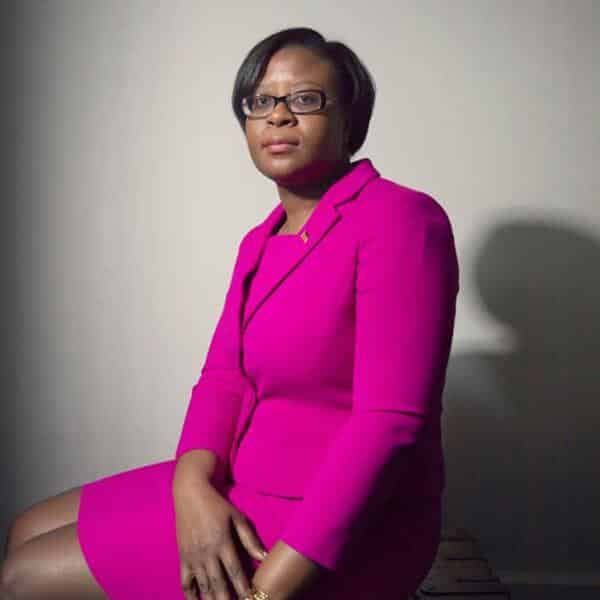
In 2001, High Commissioner, Her Excellency Karen-Mae Hill, the first Antiguan to win a Rhodes Scholarship, began her MPhil in Development Studies at St Peter’s College. High Commissioner Hill's career as Managing Director of Trium Bank and Trust Ltd and in various financial services commissions demonstrates her expertise in financial services regulation and management. She is now the High Commissioner for Antigua and Barbuda, where she has worked to raise awareness of the threat that climate change presents to Small Island Developing States (SIDS). Her portrait by Fran Monks, pictured here, hangs in the College Dining Hall.
The AJ Tracey Fund at St Peter's College (2022)
Increasing support for future generations of Black students
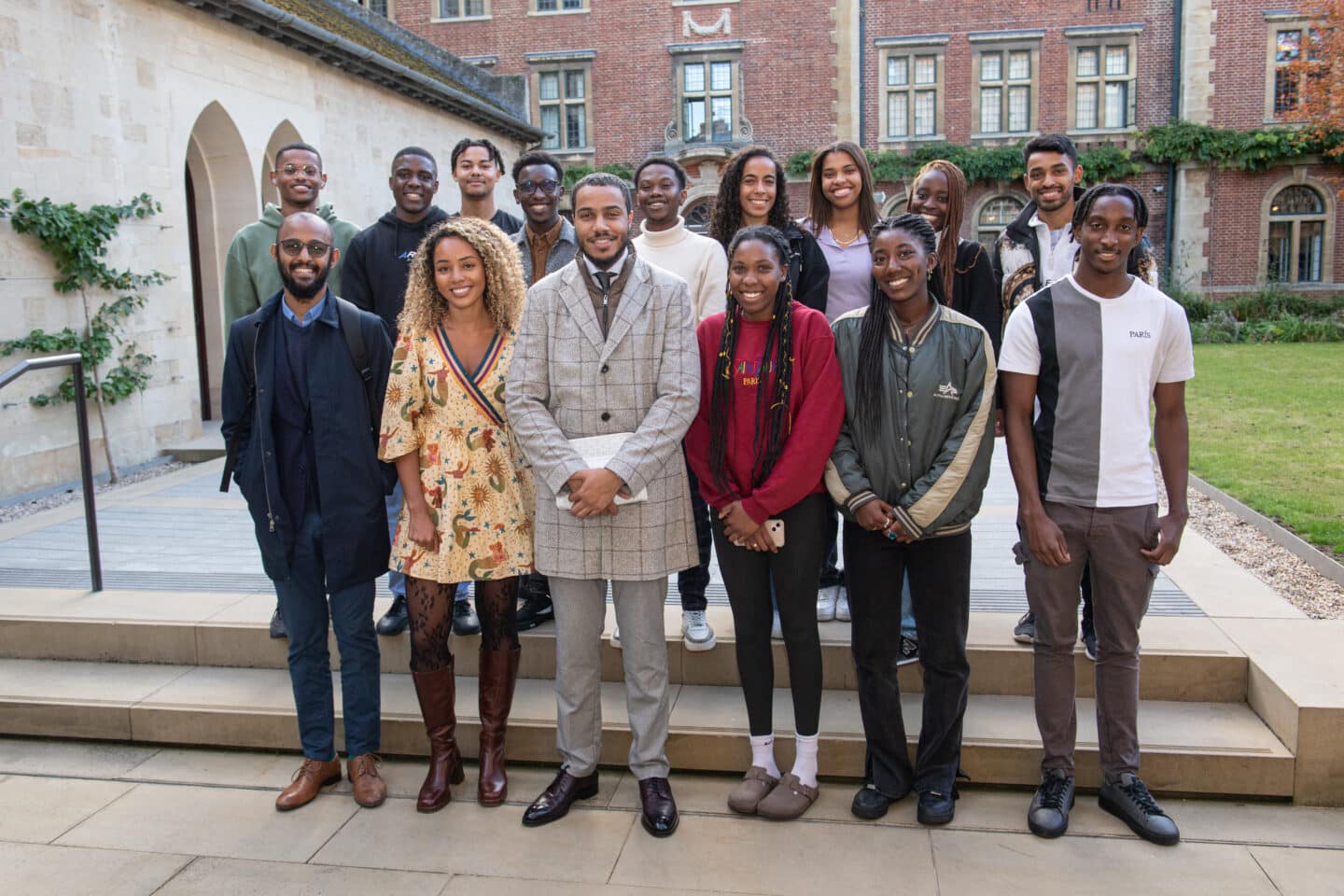
St Peter’s College Oxford is delighted to be partnering with celebrated rapper and music producer AJ Tracey in supporting Black students, Black student life and research into Black histories and experiences through the formation of The AJ Tracey Fund (established 2022)
The AJ Tracey Fund offers invaluable support for initiatives in train within the College that recognise the historic under-representation of Black students at Oxford. This includes work addressing issues of access and under-representation, expanding opportunities for Black mentorship, supporting the student experience of those from low-income backgrounds, enabling developmental opportunities for Black role models and leaders of the future, and encouraging work on Black experience, Black representation and Black histories.
The AJ Tracey Fund will complement ongoing initiatives at St Peter’s College and the University of Oxford dedicated to widening access and attracting students from historically underrepresented backgrounds to apply.